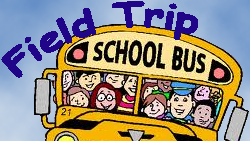The Importance of Field Trips

December 11, 2014
Diversity is key to developing one’s character. Although people may hone their knowledge, they can only utilize this intellect by being exposed to different experienced. However, how can one expect to enhance his or her character if he or she is solely raised in one specific area? As residents of Yorba Linda, students are constantly exposed to its conservative, intimate, and safe environment. If students are not aware of other communities and their struggles, successes, and customs, they would only have a parochial view of the world.
Since it is vital to be exposed to a variety of cultures, field trips are an effective method of applying students’ learnt knowledge to the world. Unfortunately, according to the American Association of School Administrators, more than half of schools have cancelled their field trips in 2010-2011.
Field trips are an essential aspect of education. Yes, students love them for the time they receive to skip school. Yes, students love visiting novel places to be with their peers. Yet, there exists a benefit far greater– an intangible, priceless method of enhancing education.
In a study conducted by the University of Arkansas, it was discovered that students obtain something from field trips that cannot be obtained from classroom lectures. After a visit to the Crystal Bridges Museum of Art, the students were observed. It was concluded that the students who attended the field trip exhibited a sharper mentality, empathy, and genuine fascination with the museum than the students who did not attend the trip. Furthermore, those students that participated in the field trip were able to recall major details as time went on.
School field trips are meant to introduce students to the arts and culture of other communities. Not only are they gaining a better sense of understanding about these places, but they are also applying their knowledge from the classroom lectures to the real world.
During the month of November, the freshman class of Yorba Linda High School went on a field trip to the Holocaust Museum of Tolerance in Los Angeles. Before the field trip, the students learned in-depth information about the Holocaust and the many people affected by it. Throughout the day of the trip, the freshmen toured the Museum of Tolerance, and they contributed to the discussions because of their accumulated knowledge on the subject. This field trip was valuable, for the students were able to perceive the real impact of the Holocaust, in addition to contributing their intellect to the field trip.
Clearly, the real meanings and values of field trips are the intangible benefits students obtain from them. They become cognizant of the reality and usefulness of the content they learn in class, and they gain a better sense of comprehension for the classroom lectures. Perhaps the real-life experiences enable them to embrace the value of education; without it, they would not be able to perceive the significance of the world around them. Furthermore, they could gain a sense of thankfulness and deeper understanding of their role in the world and the future.
Overall, field trips are essential to developing and enhancing students’ quality of education. Rather than being solely constrained to classroom discussions and lectures, field trips enable students to perceive the real world experiences that can also contribute to classroom lessons.




































